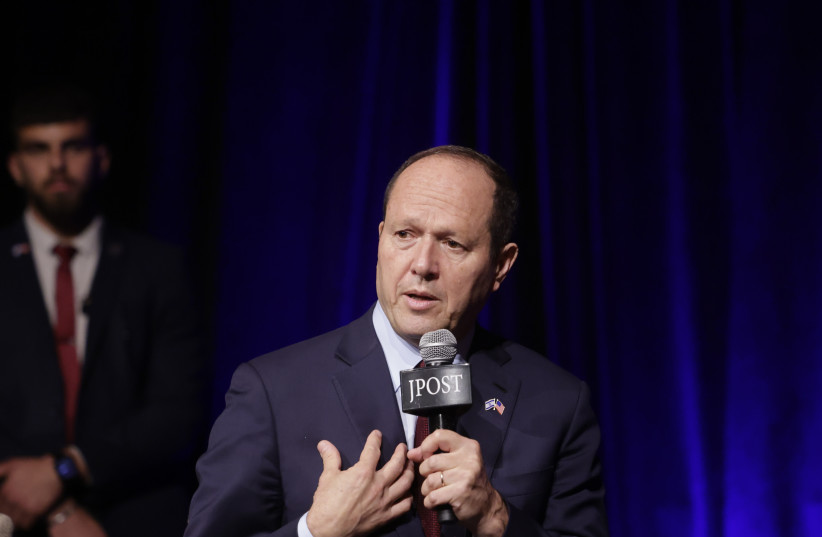During the Jerusalem Post Annual Conference in New York, Economy Minister Nir Barkat addressed reports that Iran may be moving toward possession of nuclear weaponry. “It's very clear: we will never, never allow the Iranians to have nuclear power. The Iranians should be deeply concerned, because if they come close to that threshold, they must realize that nobody in Iran should sleep well at night, because we will never allow that to happen. They should be really, really concerned,” he warned.
“I remind our friends in America that we're on the same line. We should all lay together and naturally, it's going to be easier for us in Israel to do it in collaboration with the rest of the free world, headed by the United States of America. This is my expectation, and I hope that Iran will understand, sooner rather than later, not to mess around with us.”
Barkat plans to invest billion shekels to push toward cluster-based economy
Barkat also took the time to explain his plan to invest up to a billion shekels in a program intended to push Israel’s economy toward a cluster-based economic model.
“The idea is focusing on Israel's competitive advantage,” Barkat said. “It's a process where you go through and see what business clusters are effective in Israel. For example, high tech is certainly a cluster of billions of dollars of sales. Similarly, med-tech and health law and life sciences, Homeland Security and Desert tech.”

“The idea is to tell the entrepreneurs ‘look, if you focus on one of these clusters where Israel has a competitive advantage, we can make your life more effective,’” he added. “For every Israeli there are 1,000 non-Israelis. So helping Israelis go global is a major, major challenge. And we're all over that.”
When asked to speak on the government’s proposed judicial reform, which was protested even during the interview itself by audience members, Barkat stated that “everyone understands that there's a majority of Israelis that understand we need change.”
“Speaking as [former] mayor of Jerusalem: when you want to create change, focus on the common denominator and what the majority agrees to. That's the best way to get the reforms to stick and beyond that, I realize that eventually it'll sort itself out,” he continued. “We have to sort ourselves out and focus on the common denominator, which is our security, our economy, [the question of] how we coexist and live together in Israel. These are the key elements and I believe things will be fine as long as we focus on the common denominator and make those changes needed. Because the judiciary system in Israel needs reforms. There's no doubt about it.”
Barkat advocates for tribal autocracies instead of two-state solution
When asked about the Israeli Palestinian conflict, Barkat laid out an explanation for an “outside the box” solution centered around encouraging a series of Arab autonomies throughout the country, rather than embrace a two-state solution.
“When you look at all the Arab countries. There's not one successful democratic country in the world, not one. So why do you think the Palestinians will [succeed]?” he said. “The most successful governance structures in the Arab world are the Emirates, Saudi Arabia — they’re tribal-based governance, they're autocracies, very successful autocracies. And if you look at the Arab world, the concept of tribes is very meaningful. I believe we should apply more autonomies. I don't mind that they collaborate together. It solves so many problems. It's a good way to go.”
Speaking to the current government’s progress toward a peace agreement with Saudi Arabia, Barkat said “We all see that it's headed one way: in the right direction. And so for all the people that doubt the ability of our Prime Minister Netanyahu, led by a Likud government, to strike a deal with Saudi Arabia, honestly I'm very optimistic that it can be done. It should be done. And with God's help and the skills of Benjamin Netanyahu, we will get it done.”